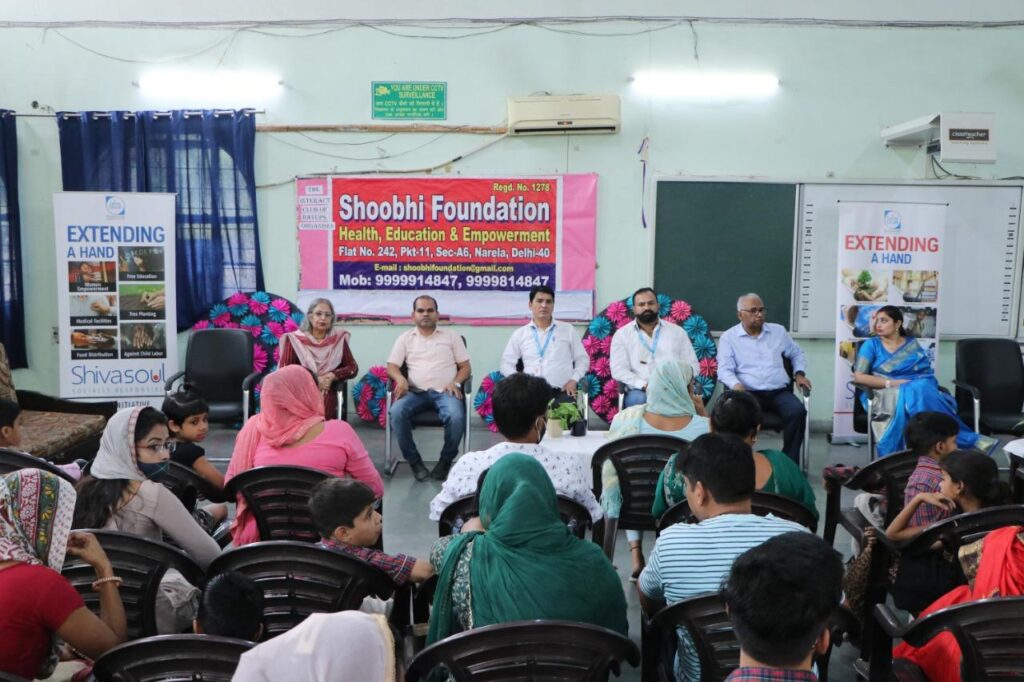
By Rusen Kumar
NEW DELHI (India CSR): In this exclusive interview, Rusen Kumar, Managing Editor & Founder of India CSR, engages in a thoughtful conversation with Kashiish A Nenwani, Director of Shivtek Spechemi Industries Ltd, on how the company is redefining corporate social responsibility (CSR) through purposeful, community-driven initiatives. Guided by the belief that business success and societal progress must move together, Shivtek Spechemi Industries has built a CSR framework rooted in long-term sustainability, measurable impact, and inclusive growth.
Through initiatives like UDAAN, the company empowers rural and semi-urban women across Himachal Pradesh and Uttarakhand with vocational training, livelihood skills, and tools for financial independence. Collaborations with organisations such as Be Kind NGO and Shoobhi Foundation have extended Shivtek’s outreach to underprivileged children by improving access to education, providing essential learning materials, and supporting meritorious students. Under Kashiish’s leadership, Shivtek integrates social values into its core business ethos, encouraging employees to participate in meaningful volunteering activities and creating a culture of shared purpose. With a forward-looking CSR roadmap that emphasizes women’s empowerment, education, environmental sustainability, and healthcare, the company continues to strengthen social infrastructure and foster lasting change across India’s semi-urban and rural communities.
1. What drives the company’s approach to social responsibility, and how do you identify the areas or causes to support?
At Shivtek Spechemi Industries Ltd, our CSR approach is guided by the belief that business growth and community development must go hand in hand. As a responsible corporate citizen, we focus on initiatives that create measurable and sustainable social impact. The CSR committee identifies areas for intervention through on-the-ground needs assessments, stakeholder consultations, and alignment with national priorities, such as education, health, and women’s empowerment. Our partnerships with organisations like Be Kind NGO and Shoobhi Foundation further ensure that our initiatives reach diverse regions the unique social and economic challenges of each community.
2. Could you share the inspiration behind the UDAAN initiative and how it has empowered women across Himachal Pradesh and Uttarakhand?
The UDAAN initiative, in collaboration with Be Kind NGO, was introduced to support women from rural and semi-urban regions by equipping them with vocational and livelihood skills. Through training programs in tailoring, stitching, and other skill-based programs, UDAAN has enabled participants to gain financial independence and self-confidence. The program has positively impacted women across Nahan, Leh, Burmapad, Kandiawala, Sirmour, and parts of Uttarakhand. By establishing training centres, providing sewing machines, and ensuring continuous learning opportunities, UDAAN has transformed the prospects of women who were previously dependent on seasonal employment opportunities or in the unorganized sector, helping them achieve dignity and stability through self-reliance.
3. How does Shivtek ensure that these interventions lead to long-term and sustainable change for the women involved?
Long-term commitment to society is at the core of CSR interventions at Shivtek. Under UDAAN, the company ensures continuity through resource support such as sewing machines, livelihood materials, and funding for training infrastructure. The objective is not only to impart skills but also to create a supportive ecosystem that allows women to generate income and sustain their livelihoods independently. The program’s outreach across multiple districts in Himachal Pradesh and Uttarakhand ensures that more women can access skill-building opportunities through the training centres and continuous learning infrastructure established under the initiative.
4. Could you elaborate on the key outcomes and success stories from the partnership with Shoobhi Foundation?
Through our association with the Shoobhi Foundation, Shivtek has supported education for underprivileged children by providing free books, uniforms, and school fee assistance to students from economically weaker sections. Over 350 students have benefited from these initiatives, and meritorious students have been awarded full-year fee sponsorships. The initiative also recognised academic excellence by sponsoring the education of first, second, and third position holders from LKG to Class 12. Additionally, students affected by the COVID pandemic received dedicated support to continue their education without disruption. The program reflects our commitment to enabling access to quality education and fostering equality of opportunity.

5. How does Shivtek integrate social impact into its larger business philosophy and culture?
Shivtek integrates social responsibility into its organisational ethos by embedding CSR values across all levels of the company. Our leadership encourages employees to actively participate in volunteering and social outreach programs, reinforcing that responsible business practices extend beyond compliance to compassion and community care. By partnering with credible NGOs such as Be Kind and Shoobhi Foundation, Shivtek ensures that employee involvement translates into visible community outcomes, be it in skill development for women or education for economically weaker children, creating a sense of shared purpose across the organisation.
6. What role can industry leaders play in strengthening social infrastructure in semi-urban and rural India?
Whether it is through skills training, resource sharing, or knowledge transfer, corporates have the capacity to drive systemic change. Collaborative efforts with NGOs and local institutions are essential for ensuring that interventions are both relevant and scalable. The UDAAN model demonstrates how strategic partnerships can directly uplift rural women through sustainable skill development, while the Shoobhi Foundation collaboration highlights the power of education in breaking the cycle of poverty. Both models showcase how industry-NGO linkages can effectively strengthen local social infrastructure.
7. What are some of the future CSR priorities that Shivtek aims to focus on?
Going forward, Shivtek intends to expand its focus areas to include environmental sustainability and health awareness programs. The company will continue to invest in education and women’s empowerment while developing scalable models for long-term community transformation.
About Rusen Kumar
Rusen Kumar is a distinguished journalist, author, and visionary knowledge entrepreneur specializing in Corporate Social Responsibility (CSR) and sustainability in India. He is the founder and managing editor of India CSR Network, a leading platform dedicated to CSR and sustainability issues.
(Copyright@IndiaCSR)
Showcase your CSR achievements and share your insights with India’s leading CSR platform.
Contact us at biz@indiacsr.in I 9981099555 to feature your success stories and interviews.






















